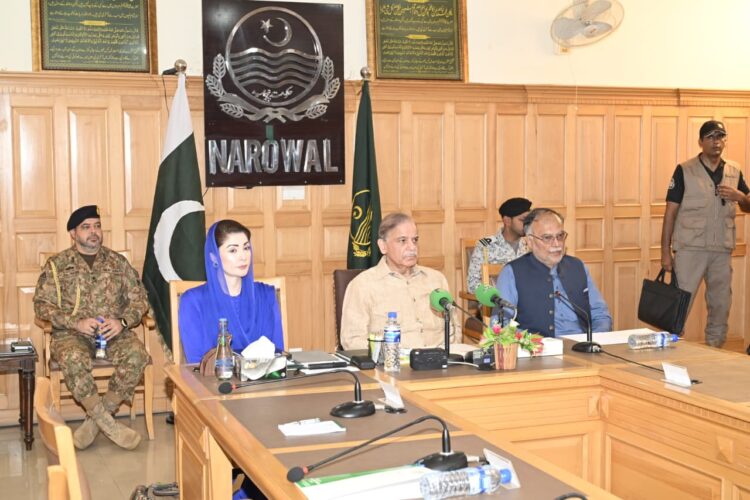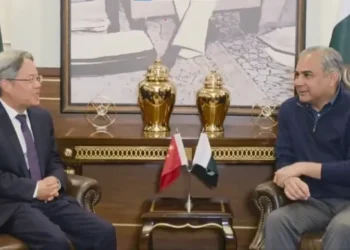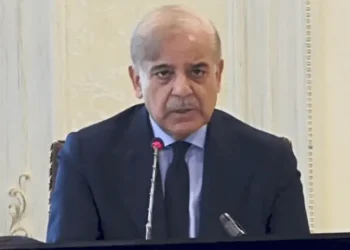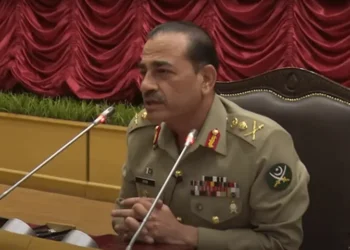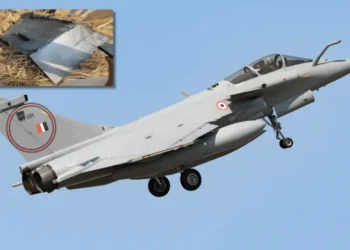LAHORE/ISLAMABAD; Prime Minister Shehbaz Sharif and Punjab Chief Minister Maryam Nawaz on Thursday visited flood-affected areas in Punjab, pledging coordinated federal and provincial efforts to address the devastation caused by the ongoing monsoon floods, which have claimed at least 12 lives across the province.
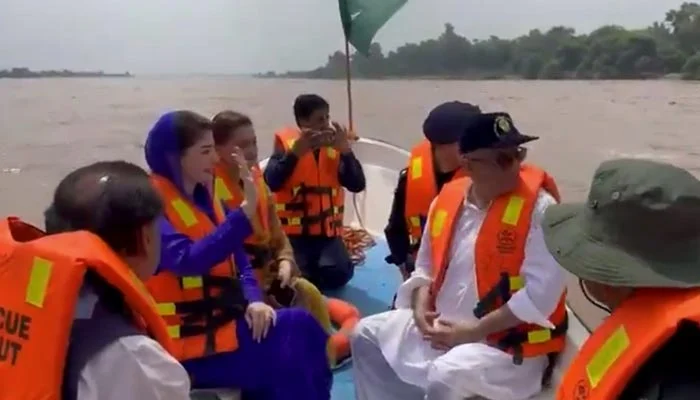
During her visit to the Ravi River at Shahdara, CM Maryam Nawaz boarded a boat to inspect submerged areas and reviewed rescue and relief operations. Speaking to the media, she said the province had faced unprecedented rainfall in recent weeks, leading to dangerous water levels in Ravi, Chenab, and Sutlej rivers.
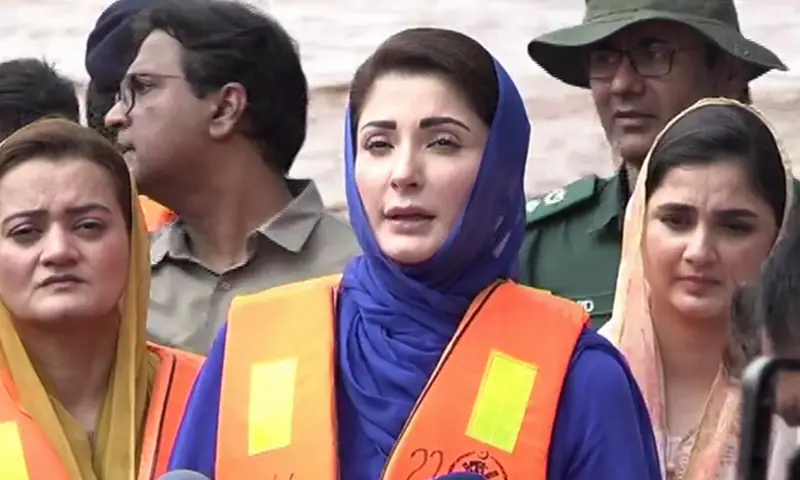
“I have never seen so much water in the Ravi River. Our rivers were under immense pressure. Had the government not prepared in time, the damage could have been catastrophic,” she remarked. She praised the efforts of rescue and local administration teams, stating that more than 50,000 people and thousands of livestock had been successfully relocated to safer areas.
Maryam also highlighted ongoing relief measures, including field hospitals and nearly 1,000 mobile clinics to prevent outbreaks of waterborne diseases. She ordered immediate drainage of water from the flooded Gurdwara to facilitate the Sikh community and assured full rehabilitation of damaged infrastructure and compensation for affected families.
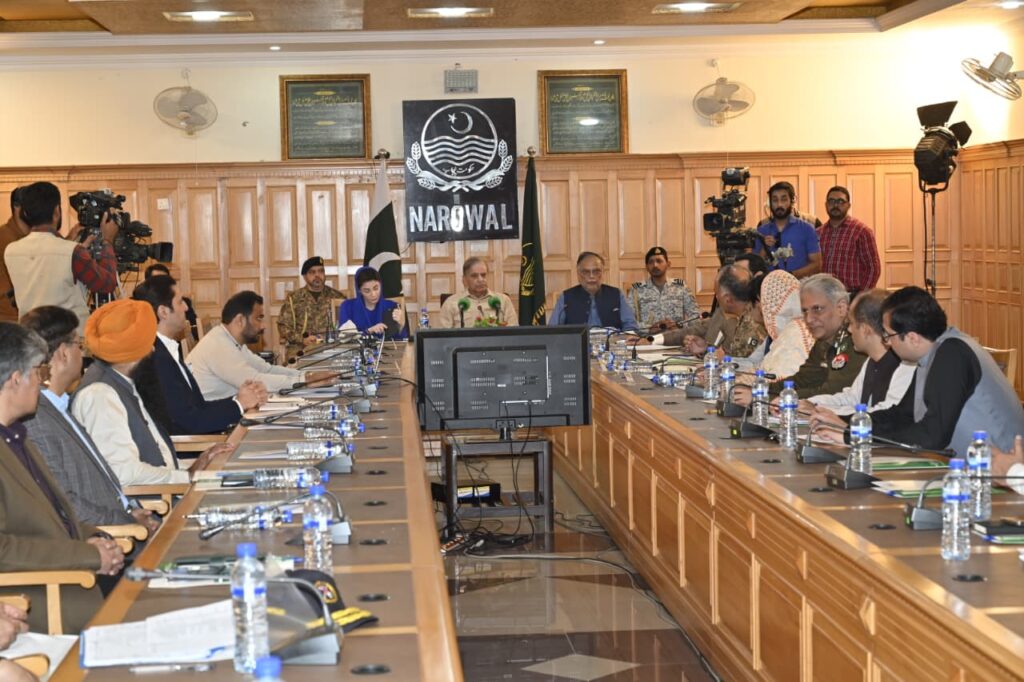
Later, Prime Minister Shehbaz Sharif, after being briefed by the Punjab chief minister, emphasized that climate change had magnified the threat of recurring natural disasters, urging the urgent construction of major and small dams to boost water storage capacity.
“Lives have been lost on a large scale in KP and GB, and now floodwaters have turned into a deluge in Punjab. The relief activities by the army and provincial administration are commendable,” the prime minister said. He called for collective national efforts to mitigate the impact of floods, stressing that resources must be generated to build Diamer Bhasha and Mohmand dams, as well as smaller storage projects in Chiniot and the northern areas.

Shehbaz appreciated the close coordination between the armed forces and civil administration in rescue and relief operations, while also directing NDMA, PDMAs, and allied agencies to improve preparedness for future disasters.
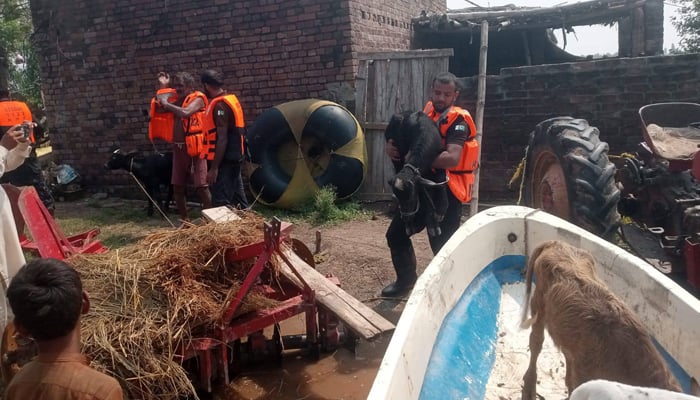
Minister for Planning Ahsan Iqbal echoed the urgency of strengthening infrastructure, while NDMA Chairman briefed the meeting that this year’s monsoon had been more intense and prolonged than previous years, describing the damage as “unprecedented.” High flood levels, he added, remain in Ravi, Chenab, and Sutlej rivers.
Both federal and provincial leaders vowed to ensure that relief reaches every affected person, while rehabilitation and compensation would be prioritized in the coming weeks.




















































